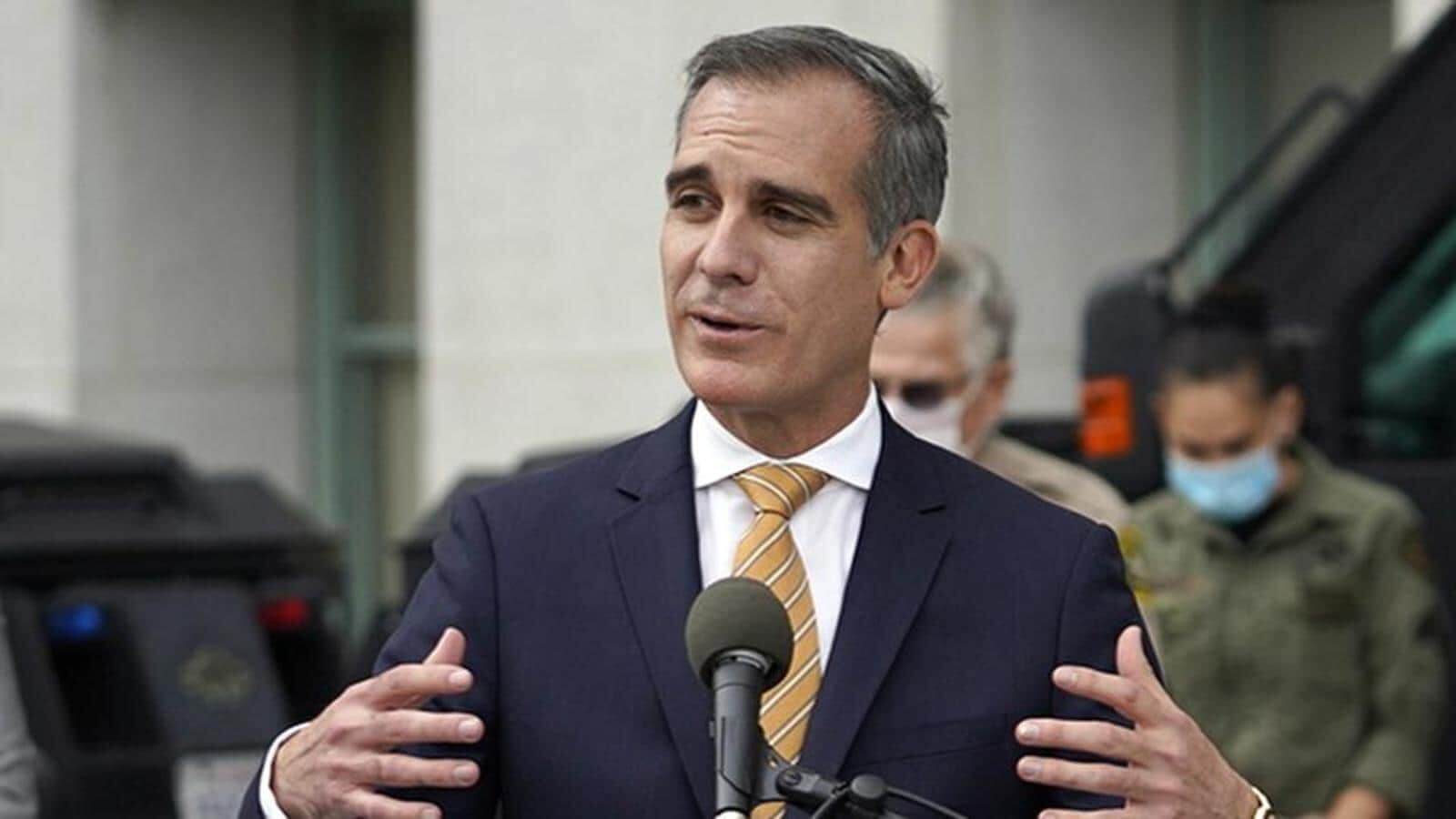On Tuesday, United States (US) President Joe Biden’s nominee for ambassador to India, Eric Michael Garcetti, addressed the Senate at his confirmation hearing. He said his focus as the envoy to India would be on human rights and enhancing India’s capacity to secure its borders.
Garcetti is currently serving as the mayor of Los Angeles. He has been an active political figure of the Democratic party since 2001, when he was elected to the Los Angeles City Council. Before his political career, he worked as an Intelligence Officer for the US Navy Reserve Component. Prior to his retirement from the Navy in 2017, he served under the Commander, US Pacific Fleet, and the Defence Intelligence Agency.
As a mayor, he co-founded the “Climate Mayor’s Network,” which provides a platform for over 400 American mayors to work together to adopt the Paris Climate Agreement. He currently chairs the C40 Cities, a group of 97 of the world’s largest cities that aim to adopt bold climate action policies. In fact, he has used the programme to boost climate engagement with India. Garcetti is also a close aide of President Biden and even assisted him in his 2020 Presidential campaign.
Addressing the Senate Foreign Relations Committee, Garcetti vowed to raise human rights issues with New Delhi and engage with members of civil society. He said, “There are groups that are actively fighting for human rights of people on the ground in India that will get direct engagement from me.” He highlighted human rights and democratic institutions as the “key elements” of the US-India strategic partnership.
#WATCH | India is situated in a tough neighborhood.If confirmed, I intend to double-down on our efforts to strengthen India’s capacity to secure its borders and deter aggression through counterterrorism coordination: Eric Garcetti on his nomination as US Envoy to India pic.twitter.com/JqfFDoE6iV
— ANI (@ANI) December 15, 2021
Garcetti’s statements were in response to a question by the chair of the committee, Robert Menendez, who asked about the “democratic backsliding” that India is currently witnessing. He cited the example of the Citizenship Amendment Act and questioned Garcetti on his approach to the issue.
Additionally, Garcetti recognised the challenges faced by India due to its geographical location. He said that India is situated in a “tough neighbourhood” and vowed to help the country secure its borders and defend its sovereignty by enhancing interoperability in counterterrorism operations. Garcetti added that he would promote joint freedom of navigation patrols and military exercises. Furthermore, he vowed to help realise the “full potential” of the two countries’ defence partnership by providing India access to advanced defence technologies.
Concerning economic ties, Garcetti said he would ensure that bilateral trade reaches new heights during his tenure. He also expressed his intention to promote an “ambitious economic partnership” to bring down market access barriers and facilitate free trade.
Subsequently, he addressed the ongoing tensions between the two countries due to India’s purchase of Russian S-400 missiles. Garcetti said he “fully supports” the US’ Countering America’s Adversaries Through Sanctions Act (CAATSA). That being said, it is possible that the US could waive sanctions against India to protect relations with a key ally. Garcetti, however, was non-committal during his address and did not clarify whether he would advance such a waiver or push for sanctions under the CAATSA. Nevertheless, he said he would continue to support India’s aim of diversifying its weapons systems.
Lastly, he vowed to enhance cooperation in climate action by promoting sustainable energy sources through the International Solar Alliance and the Agenda 2030 Climate and Clean Energy Partnership.
India has increasingly become central to the US’ foreign and defence policy, specifically in the Indo-Pacific, where it aims to counter China’s growing aggression. Due to India’s geopolitical influence in the region and its strategic location, the US has been furthering its defence partnership with the Asian power through the Quad and other bilateral and multilateral engagements. Given Garcetti’s military background, the US is perhaps hinting at expanding these already growing defence ties, which were underscored in Defence Secretary Lloyd Austin’s recent call with his Indian counterpart Rajnath Singh.

